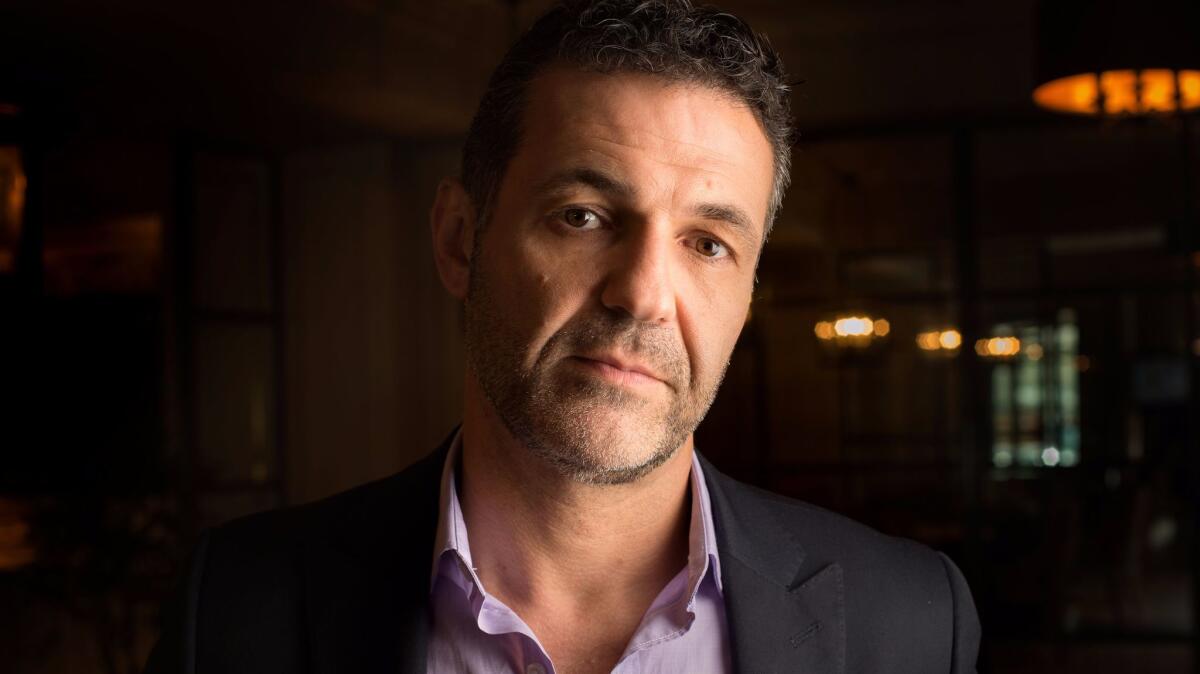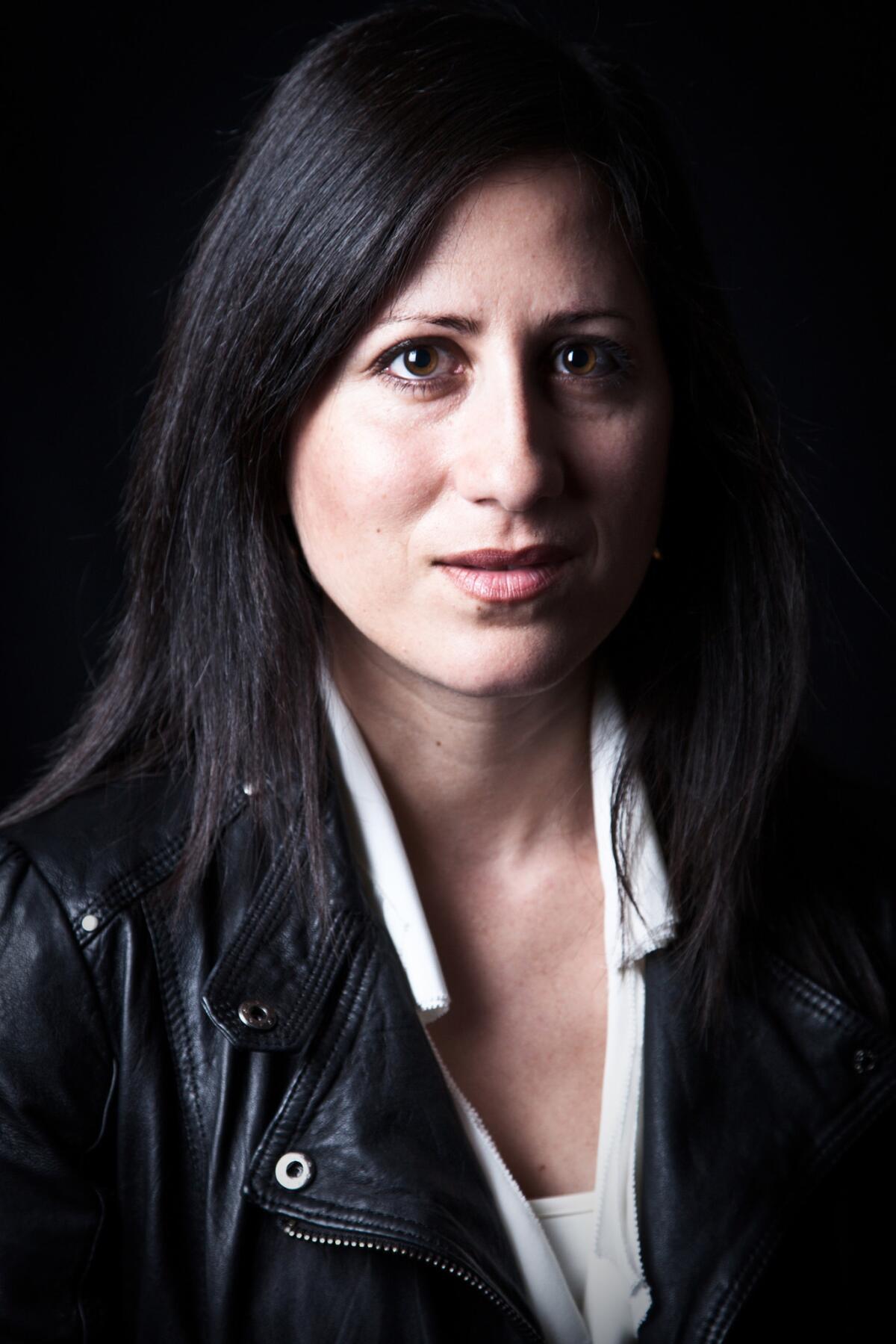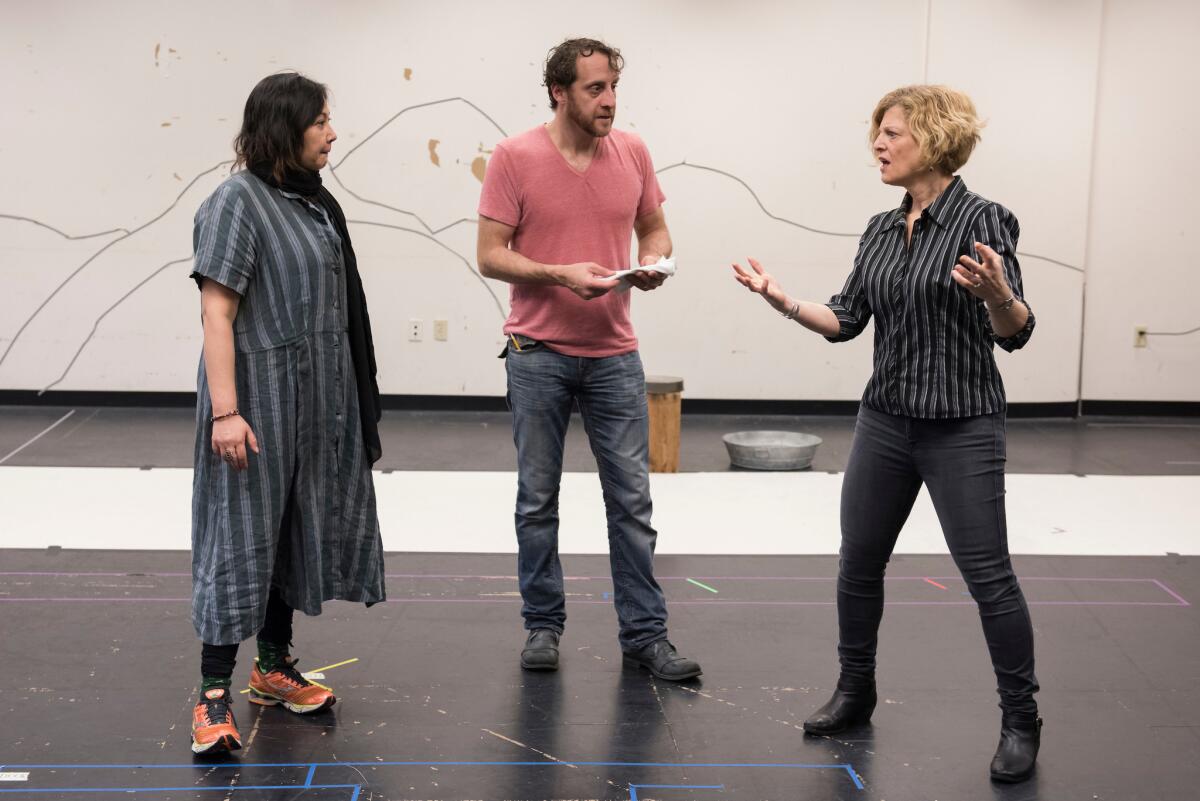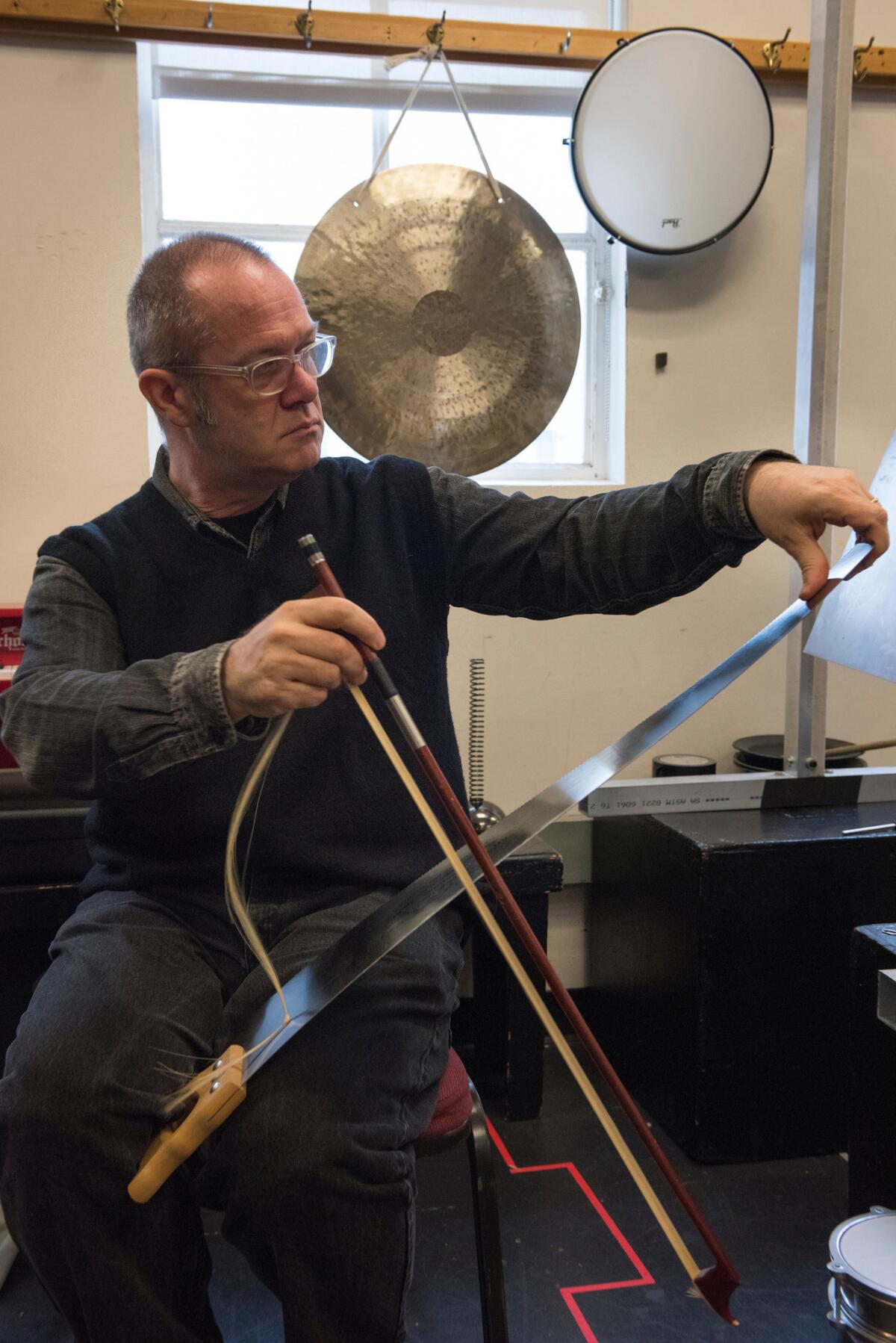For ‘A Thousand Splendid Suns,’ a well-timed journey from the page to the stage
In a much retweeted curtain-call speech from the Broadway stage in November, “Hamilton” actor Brandon Dixon conveyed to then-Vice President-elect Mike Pence that theater can be a dramatic reminder of our shared humanity.
Khaled Hosseini hopes that the theatrical adaption of his second novel, “A Thousand Splendid Suns,” can do just that too.
Ten years after the book came out with its portrayal of Muslim women and girls in Taliban-controlled Kabul, a theatrical adaption of “A Thousand Splendid Suns” is having its world premiere in San Francisco. The play, running Feb. 1 to 26, coincides with what many feel is a climate of intensified Islamophobia, and Hosseini finds it disturbing that his narrative has a renewed relevance.
“With the divisive rhetoric of the presidential campaign, I think stories that bring to light our universal human impulses and needs and desires are more relevant than ever before,” Hosseini said from his home in San Jose. “Fiction” he said, “is antithetical to wall building. Fiction is a peek over walls, not the building of them.”

“The Kite Runner,” Hosseini’s 2003 novel, was an early post-9/11 novel about Muslims, Afghanistan and Afghans in America. The acclaimed bestseller landed just as the region and the religion pervaded the American consciousness.
Whereas “The Kite Runner” focuses on fathers and sons, “A Thousand Splendid Suns” explores the lives of mothers and daughters. The novelist wanted to put a human face on the women behind the burka.
“I wanted,” he said, “to get beneath that kind of iconic picture of a woman in a burka walking on the street.”

Hosseini refers to himself as a supportive bystander in the theatrical production, which American Conservatory Theater of San Francisco is co-producing with Theatre Calgary of Canada. ACT Artistic Director Carey Perloff commissioned Irish Indian playwright Ursula Rani Sarma to adapt the script. Sarma had the tricky task of adapting a book that spans 30 years, multiple generations and myriad points of view.
The book follows the lives of two women from strikingly different classes and educational backgrounds. Mariam had an emotionally impoverished childhood as the illegitimate and exiled daughter of a wealthy father and his servant. She is forced into a miserable, loveless marriage. “I have known a lot of Mariams in Afghanistan,” said Hosseini, who described the “constant toil and grind” of their lives. But Lailas — urban, educated women with backgrounds similar to his own — were more familiar to him in the progressive hub that was Kabul in the 1970s.
As the Taliban rises and Kabul falls, Mariam and Laila (played by Kate Rigg and Nadine Malouf) become each other’s lifeline in a time and place where a woman’s life was worthless. Mariam’s mother tells her, “Only one skill you need, and it’s this: Tahamul. Endure.”
In adapting the script, Sarma knew she couldn't “cram the entire political context of Afghanistan” into the play. “It would end up feeling like a history lesson,” she said. She chose to narrow in on the women’s friendship and how it enables them to endure.
Director Perloff said that although many plays are about male friendship, she had never seen a play that wrestles with, and celebrates, female friendship. Sharing the same four walls and the same abusive husband, “together they raise a child and that's how they survive,” she said.

The play emphasizes the fear, domestic and political violence that women suffered under the Taliban’s brutal laws. On the stage, Perloff said, the abuse “feels visceral but not literal.”

There are poetic elements that avert an exacting realism, such as the original music composed by David Coulter, who plays the saw on stage.
Adapting a novel that feels visceral but not literal is no easy task. Last month’s opening of the West End stage production of “The Kite Runner” was panned as “plodding” (Financial Times, the Independent) and as a “workmanlike summation of the book” (the Guardian). Adaptations sometimes meet that fate.
“You hear so often, ‘Why did you mess with what was already really beautiful and perfectly simple?’” Sarma said. Her approach is to see adapting as akin to sculpting — “in the sense that there’s a play living within this novel, and it's about peeling away the excess.” To succeed, the adapter must embrace the advantages and the limitations of the new medium, she said.
Hosseini has seen his first book become a movie and a play. (The London production of “The Kite Runner” premiered at San Jose Repertory Theatre in 2009.) The screen adaptation of his second book is “sort of in Hollywood development limbo.”
He said theater has a better shot at bridging the cultural divide. Like fiction, it’s a peek over the wall. And it can be more intimate than film, with the story unfolding right in front of you. As Perloff explained, “There's something about being in the same space with human beings going on this kind of journey that I find incredibly moving.”
Now more than ever, they hope that the play can respond to stereotypes (often started by something as simple as clothing that looks different) and the alarmist anti-Muslim voices that have grown louder “on the basis of a piece of garment,” Hosseini said.
“My hope is that people see the play and not see divisions but rather the things that we share. That people walk out with a greater sense of understanding and empathy,” Hosseini said.
He believes that stories like his endure because they can “help us see something of ourselves in others. It helps connect us to people who speak different languages, pray differently, have different customs.”
Mariam and Laila may seem exotic and different, Sarma said, but “they are people trying to survive. And aren't we all?”
SIGN UP for the free Essential Arts & Culture newsletter »
Follow The Times’ arts team @culturemonster.
ALSO
L.A. Opera plans production with Lyric Opera of Chicago, Joffrey Ballet
George Lucas' wife, the public voice of his museum, talks vision
Emma and Ryan dancing in 'La La Land': beautiful magic or overrated misstep?
The love of her life, and the lies that came with him
A race-themed work not performed in L.A. for 67 years is back
The biggest entertainment stories
Get our big stories about Hollywood, film, television, music, arts, culture and more right in your inbox as soon as they publish.
You may occasionally receive promotional content from the Los Angeles Times.



